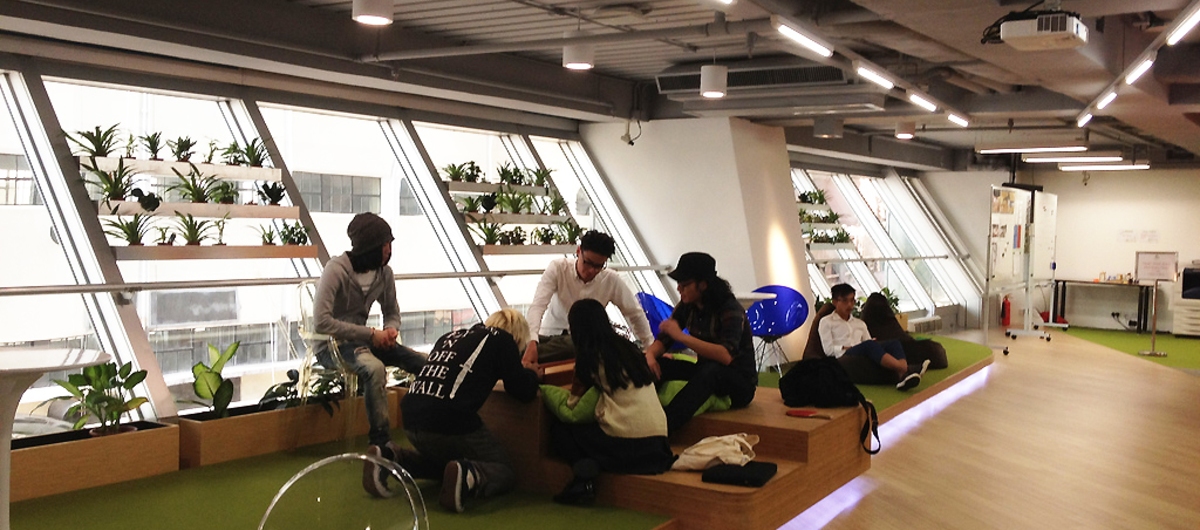Keeping it Green on all Levels
Marissa Feinberg and Jennie Nevin are the co-founders of Green Spaces. Feinberg works in the Manhattan location and Nevin is based in Denver. Green Spaces opened in Brooklyn, NY, in 2008 and was conceived as a coworking space for the green community. In 2009 they moved out of their old space and into the current locations. In the beginning, Green Spaces called itself a “Workspace for Green Entrepreneurs,” and it was this self-description that led to a lot of environmentally friendly focused startups to call Green Spaces their home base.
Green Spaces New York is based in Tribeca in Manhattan. Feinberg told Deskmag that the companies working out this particular space typically fall into one of three categories: environmental, non-profit, and social entrepreneur. In the environmental category, cleantech companies like Highview Creations, which builds vertical gardens, IPP Solar, and the Center for Health, Environment, and Justice all work out of Green Spaces New York. But accommodating these environmental companies is only the first step towards environmental friendliness that the coworking space exemplifies.
The next step is creating strong relationships with environmentally friendly businesses that exist independently from Green Spaces. For example, if a member is looking for catering, Feinberg will refer them to a local, organic service. Or if someone is looking for printing, she can refer them to a green printer. These are all businesses with which Feinberg has developed relationships via events held at Green Spaces. She wants to “encourage [a] local economy of businesses sending business to one another … that’s how we all grow stronger together.”
Thirdly, Feinberg spoke of the inherent eco-friendliness found in the coworking model. “We have designed a whole system around a sharing economy,” she said. Consider Feinberg’s paper cutter example: “100 companies would have 100 paper cutters. At Green Spaces, 100 companies have one paper cutter. That makes so much more sense in terms of using resources wisely. We don’t need another 100 paper cutters out there.” She says that coworking intrinsically possesses, “sustainable values of sharing … not just sharing all the tangible resources like the real estate and the electric bills, but also sharing ideas and caring about one another and [working] in a collaborative spirit.”
The Denver Green Spaces is located in River North, an up and coming area next to the downtown area. It is also home to many green startups, including several green architects, an advocacy group focused on climate change, and GreenLeaf. The events at the Denver space are primarily focused on being environmentally conscious. And while not all of the startups working out of the space are green per se, all new members fill out a green mission statement as a part of their new member orientation.
And the coworking space itself also practices what it preaches. Green Spaces is 100% solar powered, owning one of the largest arrays of solar panels in downtown Denver. Nevin also says that they use some innovative green technology like light tubes. When remodeling their building, they used all reclaimed materials, including barn wood and recycled granite. They also source their materials consciously and do composting and recycling.
Not only are the people inside of these coworking spaces creating a more eco-friendly world with their companies, but the physical space is also purporting those same ideals all the while, and so allowing environmental sustainability to be integrated into all facets of the operation.






